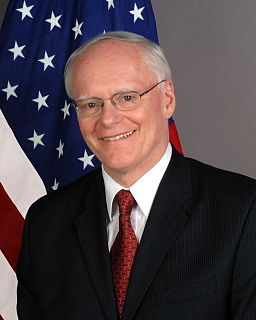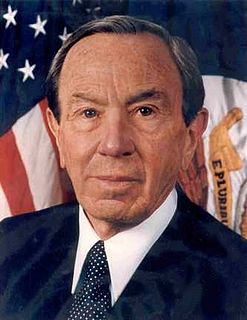A Quote by Michael T. Flynn
NATO was formed post-World War II. We're a little bit more than a half-century old. Do we want NATO to go on for another half-century? I think that the answer is, sitting here today: I don't know. If I had to bet on it, I would say, yeah, we have to have these alliances going forward and see who's going to pay for them.
Related Quotes
What's the purpose of NATO? Well actually we have an official answer. It isn't publicized much, but a couple of years ago, the secretary-general of NATO made a formal statement explaining the purpose of NATO in the post-Cold War world is to control global energy systems, pipelines, and sea lanes. That means it's a global system and of course he didn't say it, it's an intervention force under US command, as we've seen in case after case. So that's NATO.
I think NATO is obsolete. NATO was done at a time you had the Soviet Union, which was obviously larger - much larger than Russia is today. I'm not saying Russia is not a threat. But we have other threats. We have the threat of terrorism. And NATO doesn't discuss terrorism. NATO's not meant for terrorism. NATO doesn't have the right countries in it for terrorism.
D-Day represents the greatest achievement of the american people and system in the 20th century. It was the pivot point of the 20th century. It was the day on which the decision was made as to who was going to rule in this world in the second half of the 20th century. Is it going to be Nazism, is it going to be communism, or are the democracies going to prevail?
From Nato to the U.N. and the E.U., the generation that lived through the first half of the 20th century knew they needed to create a new world order. An order with rules and institutions which, however imperfect, could act both as constraints on individual countries going rogue and as catalysts for co-operation for mutual benefit.
In 2003, at the time I made my "Old Europe" comment, the center of gravity in NATO and Europe had long since shifted to the East. With the former Warsaw Pact countries joining NATO, the alliance has a different mix today. Some people were sensitive about my comment because they thought it was a pejorative way of highlighting demographic realities. Apparently they felt it pointed a white light at a weakness in Europe - an aging population. Europe has come some distance since World War II in becoming Europe.
I welcome the fact that Trump has clearly stated that NATO is not obsolete.And I think, also, that reflects that NATO is adapting. NATO is the most successful alliance in history because we have been able to change, to adapt when the world is changing. And now NATO is stepping up its effort in the global fight against terrorism, and we are responding to a more assertive Russia with an increase of our collective defense, with more presence in the eastern part of the alliance.
Let's contemplate this, how many people would die if war breaks out. There are 2.7 billion people in the world. One-third could be lost; or, a little more, it could be half... I say that, taking the extreme situation, half dies, half lives, but imperialism would be razed to the ground and the whole world would become socialist.
Even a good marriage leaves people with longings for certain things their marriage will never be. So, do they accept that, make compromises, and say, "You can't have everything in life," which is what we always did? Or do they say, "I deserve more. I want to experience that thing and, you know, I have fifty more years to live than I used to." It's not necessarily that we have more desires today, but we do feel more entitled to pursue them. We live in this "right to happiness" culture, and yes, we do live half a century longer than we used to.





































